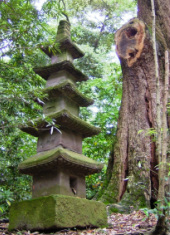Transitioning or Retirement?

The Japanese, who live the longest of any country in the world, don’t have a word for retirement. Their culture emphasizes ikigai, which means purpose in life. In rural areas where elderly Japanese can tend to their farms and gardens, maintaining ikigai might be easier than in cities where cramped conditions often limit one’s choices of working.
LifeNuts have a strong ikigai and, as they age, they transition from one purpose in life to another. When child rearing is finished, a LifeNut evaluates his or her career, asking several important questions. Shall I continue working in my field? Can I separate my career from my self-image? Shall I switch careers? Shall I look for a part-time job or become a volunteer? Do I want to spend more time with my children and grandchildren? These vital questions determine how you’ll spend those golden years.
For most Americans, net worth dictates that they’ll keep on working, not necessarily because they love their job but because they need the income. In 2011 the oldest baby boomers turned 65, ushering in a wave of millions of older Americans who will shape our nation’s culture as they age. Forty percent of these boomers have a zero net worth (their debt equals their savings) and an embarrassing 60% live month-to-month, according to several polls.
Traditionally, Americans have viewed retirement as a goal – quit working and “enjoy” life. And, while everyone deserves leisure time during one’s senior years, those who transition from a busy worklife to inactivity gravitate towards an early death. Surveys reveal that your life expectancy will be between five and ten years if you become a couch potato when you retire. Doesn’t sound like fun to me. Search the net with this phrase, “CEO dies after retiring,” and you’ll find several interesting examples. One of the most loved CEOs that died after stepping down from his lofty post was Steve Jobs of Apple. At 56, Jobs died of cancer in 2011. Granted, he was sick before he retired.
First, if you love being a pediatrician, a postal worker, an assembly line worker, a plumber, or a CEO of a Fortune 500 company and you continue to excel in your job, then stick with it. A LifeNut can work well into his or her 90s and beyond. In late 2011 Federal Judge Wesley Brown, at the still young age of 103, was the oldest federal judge still hearing cases. In March of 2011, Judge Brown decided to lower the stress of his job by declining criminal cases and accepting only civil ones. He has a strong ikigai. If he should lose his purpose in life, would he die?
There’s no question that transitioning into a new career or into retirement involves a major change in one’s life. If you decide to retire or transition to a new job, the first hurdle will be dealing with the mental aspect of adapting to a new lifestyle, one without you working in your previous career. It’s not always easy to make this decision. I know it wasn’t easy for me. But, being a LifeNut, I adapted. You can, too.
LifeNuts have a strong ikigai and, as they age, they transition from one purpose in life to another. When child rearing is finished, a LifeNut evaluates his or her career, asking several important questions. Shall I continue working in my field? Can I separate my career from my self-image? Shall I switch careers? Shall I look for a part-time job or become a volunteer? Do I want to spend more time with my children and grandchildren? These vital questions determine how you’ll spend those golden years.
For most Americans, net worth dictates that they’ll keep on working, not necessarily because they love their job but because they need the income. In 2011 the oldest baby boomers turned 65, ushering in a wave of millions of older Americans who will shape our nation’s culture as they age. Forty percent of these boomers have a zero net worth (their debt equals their savings) and an embarrassing 60% live month-to-month, according to several polls.
Traditionally, Americans have viewed retirement as a goal – quit working and “enjoy” life. And, while everyone deserves leisure time during one’s senior years, those who transition from a busy worklife to inactivity gravitate towards an early death. Surveys reveal that your life expectancy will be between five and ten years if you become a couch potato when you retire. Doesn’t sound like fun to me. Search the net with this phrase, “CEO dies after retiring,” and you’ll find several interesting examples. One of the most loved CEOs that died after stepping down from his lofty post was Steve Jobs of Apple. At 56, Jobs died of cancer in 2011. Granted, he was sick before he retired.
First, if you love being a pediatrician, a postal worker, an assembly line worker, a plumber, or a CEO of a Fortune 500 company and you continue to excel in your job, then stick with it. A LifeNut can work well into his or her 90s and beyond. In late 2011 Federal Judge Wesley Brown, at the still young age of 103, was the oldest federal judge still hearing cases. In March of 2011, Judge Brown decided to lower the stress of his job by declining criminal cases and accepting only civil ones. He has a strong ikigai. If he should lose his purpose in life, would he die?
There’s no question that transitioning into a new career or into retirement involves a major change in one’s life. If you decide to retire or transition to a new job, the first hurdle will be dealing with the mental aspect of adapting to a new lifestyle, one without you working in your previous career. It’s not always easy to make this decision. I know it wasn’t easy for me. But, being a LifeNut, I adapted. You can, too.
